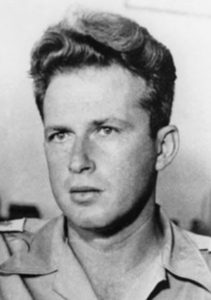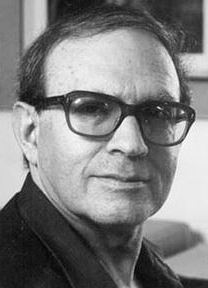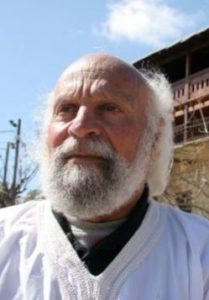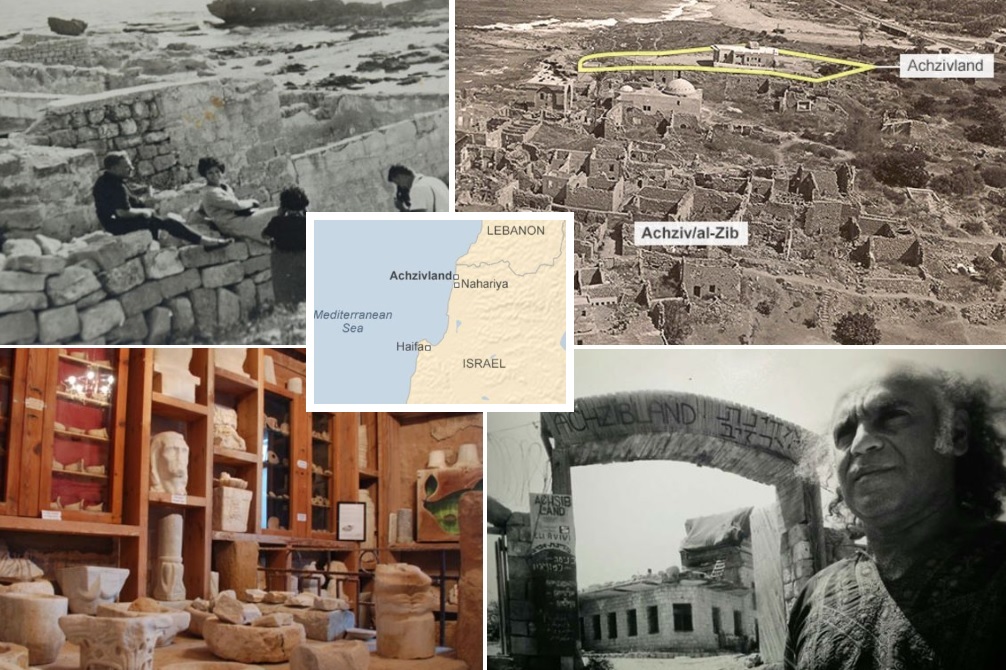In Memory of a Great Israeli Hero

Yitzhak Rabin in 1948
Yitzhak Rabin (1922-1995) was born in Jerusalem to Russian-Jewish parents who settled in the Holy Land during the Third Aliyah. He was raised in Tel-Aviv, and at the age of 14 enrolled in an agricultural school founded by his mother, at the same time enlisting in the Haganah defense force. Though originally hoping to be an irrigation engineer, he ultimately decided to stay in the military and fight for the Jewish homeland. In 1941, he joined the Haganah’s elite unit, Palmach, and his first mission was to assist the Allied Forces in the invasion of Lebanon during World War II. After the war, he spent time training new recruits and worked against British efforts to restrict Jewish immigration. At one point, Rabin was arrested by the British and spent five months in prison. During Israel’s War of Independence, Rabin was the Palmach’s COO and commanded its second battalion. He was in charge of the southern front against Egypt, and was involved in the capture of the cities of Ramle and Lod, and the liberation of Ramat Rachel. He was part of Israel’s delegation during the 1949 peace talks that ended the war. He later headed Israel’s Northern Command, and in 1964 was made Chief of Staff, the top general of the IDF. It was under his tenure that Israel planned and executed the miraculous Six-Day War and recaptured Jerusalem. For Rabin, this was the culmination of his military career, and the fulfilment of his dreams. It was time to retire. The following year, he was made ambassador to the United States, serving in that role for 5 years. Rabin was instrumental in getting the US to start selling its fighter jets to Israel, and during his time the US became Israel’s biggest military supplier. He returned to Israel following the Yom Kippur War and was elected to the Knesset. Several months later, Golda Meir resigned and Rabin became Israel’s prime minister. In 1976, he gave the difficult order to plan a rescue operation for Jewish hostages held in Entebbe, resulting in the stunning Operation Thunderbolt. A year later, his Labour Party was defeated in the elections, but Rabin remained in the Knesset, and in 1984 was appointed Minister of Defense. As terrorism from the West Bank got worse, Rabin instituted an “Iron Fist” determent policy, and during the First Intifada was nicknamed “Rabin the Bone Breaker”. Nonetheless, the violence only worsened, and Rabin decided to give peace a chance. He won the 1992 election and returned to the role of prime minister, his main goal to end the Arab-Israeli conflict. He signed the controversial Oslo Accords in 1993, for which he was awarded the Nobel Peace Prize. He also worked out the Israel-Jordan Peace Treaty of 1994. Meanwhile, Rabin was a huge economic reformer, transforming Israel from a state with a more socialist bent to a fully capitalist one. His “Yozma” program encouraged foreign venture capital and led to the development of Israel’s booming high-tech sector. His government boosted spending in education by 70%, and in 1995 instituted Israel’s universal health care system. On November 4th of that same year, Rabin was tragically assassinated by an extremist for “capitulating” to the Arabs. The square where he was shot was renamed after him, as were many other streets and landmarks. Politics aside, very few people have done more for the State of Israel and its citizens than Yitzhak Rabin. He is rightfully remembered as one of Israel’s greatest heroes.
Video: Bill Clinton Describes His “Love Like No Other” for Yitzhak Rabin
Words of the Week
It does no good… to brand one as an “enemy” or “anti-Semite”, however tempting it is to do so even if that person vehemently denies it. It can only be counterproductive. On the contrary, ways and means should be found to persuade such a person to take a favourable stance, at least publicly. We haven’t got too many friends, and attaching labels will not gain us any.
– Rabbi Menachem Mendel Schneerson (1902-1994), the Lubavitcher Rebbe


 Eli Avivi (1930-2018) was born in Iran and made aliyah to the Holy Land with his family when he was just two years old. As a teenager, he joined Plugat HaYam, or Palyam, founded in 1945 as the navy arm of Palmach, the “special forces” of the pre-IDF Haganah. The primary task of Palyam was to escort and defend Jewish refugee ships coming from Europe, as well as ships containing arms for the young Jewish state. Avivi was one of seventy sailors that facilitated the arrival of 70,000 Jews to Israel over the course of 66 missions. He was also among the four hundred Palyam marines that fought in Israel’s War of Independence. Still drawn to the sea after the battles were over, Avivi became a fisherman. This took him on sailing trips around the world, and at one point he spent a year living in Greenland with the natives. Returning to Israel to visit his family in 1952, Avivi happened upon an abandoned fishing village near the Lebanese border, formerly inhabited by Arabs that had fled during the war. The young sailor settled there, making a living by selling fish to a nearby kibbutz. He eventually got married, and he and his wife continued a quiet, peaceful life mostly removed from civilization. In 1963, the Israeli government decided to turn the entire area into a national park, and sent the couple eviction notices. They battled the government until 1971, when their land was fenced in and their huts bulldozed, causing Avivi to declare independence from the State of Israel! The couple was promptly arrested. Their peaceful protests soon brought international attention, leading to an agreement with the government that resulted in the formation of the micro-state of “Akhzivland”. (The name comes from the archaeological ruins of the Biblical town of Achziv that the village was built upon.) Avivi’s success was partly owed to the support he had from
Eli Avivi (1930-2018) was born in Iran and made aliyah to the Holy Land with his family when he was just two years old. As a teenager, he joined Plugat HaYam, or Palyam, founded in 1945 as the navy arm of Palmach, the “special forces” of the pre-IDF Haganah. The primary task of Palyam was to escort and defend Jewish refugee ships coming from Europe, as well as ships containing arms for the young Jewish state. Avivi was one of seventy sailors that facilitated the arrival of 70,000 Jews to Israel over the course of 66 missions. He was also among the four hundred Palyam marines that fought in Israel’s War of Independence. Still drawn to the sea after the battles were over, Avivi became a fisherman. This took him on sailing trips around the world, and at one point he spent a year living in Greenland with the natives. Returning to Israel to visit his family in 1952, Avivi happened upon an abandoned fishing village near the Lebanese border, formerly inhabited by Arabs that had fled during the war. The young sailor settled there, making a living by selling fish to a nearby kibbutz. He eventually got married, and he and his wife continued a quiet, peaceful life mostly removed from civilization. In 1963, the Israeli government decided to turn the entire area into a national park, and sent the couple eviction notices. They battled the government until 1971, when their land was fenced in and their huts bulldozed, causing Avivi to declare independence from the State of Israel! The couple was promptly arrested. Their peaceful protests soon brought international attention, leading to an agreement with the government that resulted in the formation of the micro-state of “Akhzivland”. (The name comes from the archaeological ruins of the Biblical town of Achziv that the village was built upon.) Avivi’s success was partly owed to the support he had from 